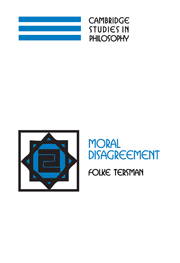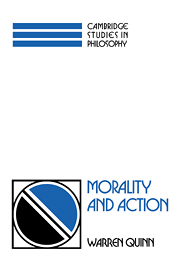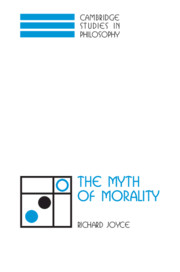Moral Disagreement
In this book, Folke Tersman explores what we can learn about the nature of moral thinking from moral disagreement. He explains how diversity of opinion on moral issues undermines the idea that moral convictions can be objectively valued. Arguments on moral thinking are often criticized for not being able to explain why there is a contrast between ethics and other areas in which there is disagreement, but where one does not give up the idea of an objective truth, as in the natural sciences. Tersman shows that the contrast has to do with facts about when, and on what basis, moral convictions can be correctly attributed to an agent or speaker.
- Unique in that it is entirely devoted to moral disagreement and its implications
- Acknowledges the crucial relevance of assumptions about when moral convictions can be correctly attributed to a thinker
- Addresses methodological questions about the content and status of meta-ethical theories
Product details
March 2006Hardback
9780521853385
160 pages
229 × 152 × 13 mm
0.41kg
Available
Table of Contents
- Preface
- 1. Realism and irrealism
- 2. The case for radical moral disagreement
- 3. Explaining and predicting disagreement
- 4. The argument from inaccessibility
- 5. The argument from ambiguity
- 6. Attributing moral judgments
- References
- Index.







